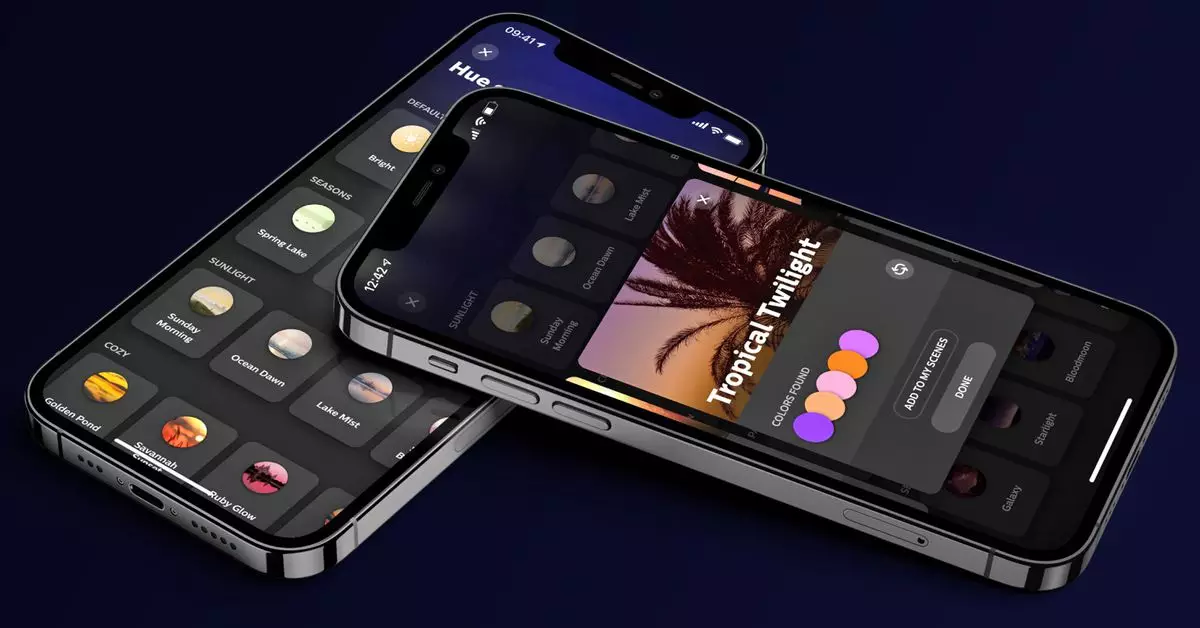Philips Hue is stepping into the future by integrating artificial intelligence into its lighting ecosystem, allowing users to customize their home ambiance like never before. Announced recently, the generative AI lighting assistant offers users a unique experience by creating personalized lighting scenes tailored to various occasions, moods, or styles. By simply typing requests such as “Set up a romantic dinner scene” into the Philips Hue app or using voice commands, users can seamlessly enhance their environments. This innovative feature represents a significant leap in how smart technology interacts with everyday living, making personalized lighting an accessible luxury.
The introduction of this AI-powered assistant also marks a departure from traditional lighting controls. Until now, users relied on manual adjustments to dim brightness or alter colors. The ability to use natural language commands simplifies the user experience, allowing individuals to express their lighting needs in straightforward terms. Philips Hue’s evolving capabilities also recognize the growing trend of integrating AI into everyday tasks, setting the company apart in a market increasingly focused on user-friendly technology.
Philips Hue isn’t the only brand vying for dominance in the smart lighting arena. While Philips Hue’s AI assistant offers a blend of recommended and generated scenes, competitors like Govee and Nanoleaf have introduced their own AI solutions. Govee’s AI Lighting Bot and Nanoleaf’s “Magic Scenes” feature demonstrate similar ambitions, but each incorporates its unique approach. However, what distinguishes Philips Hue is its promise of compatibility across its entire range of lighting products, ensuring that a broad consumer base can access the new assistant’s features.
While Philips Hue has not detailed the exact release timeline of the AI assistant, it aims to start rolling out in the first quarter of 2025. This anticipatory timeframe reflects the company’s strategic planning, likely seeking beta testers and evaluating user feedback to refine the technology. Alongside this news, Philips Hue also shared updates to their ecosystem, including compatibility with LG TVs through the Philips Hue Sync TV app and the introduction of the color-changing Philips Hue Datura ceiling light, which underscores the brand’s dedication to enhancing the smart home experience.
As home automation continues to advance, the integration of generative AI into lighting systems represents an exciting chapter in personalizing living spaces. Philips Hue’s new assistant is a testament to the brand’s commitment to innovation and consumer satisfaction. By empowering users to design their environments through their own creative expressions, Philips Hue not only meets the demand for convenience but also embraces the individuality in home design. As technology evolves, so too will the possibilities for how we interact with our surroundings, paving the way for a truly responsive living experience.


Leave a Reply